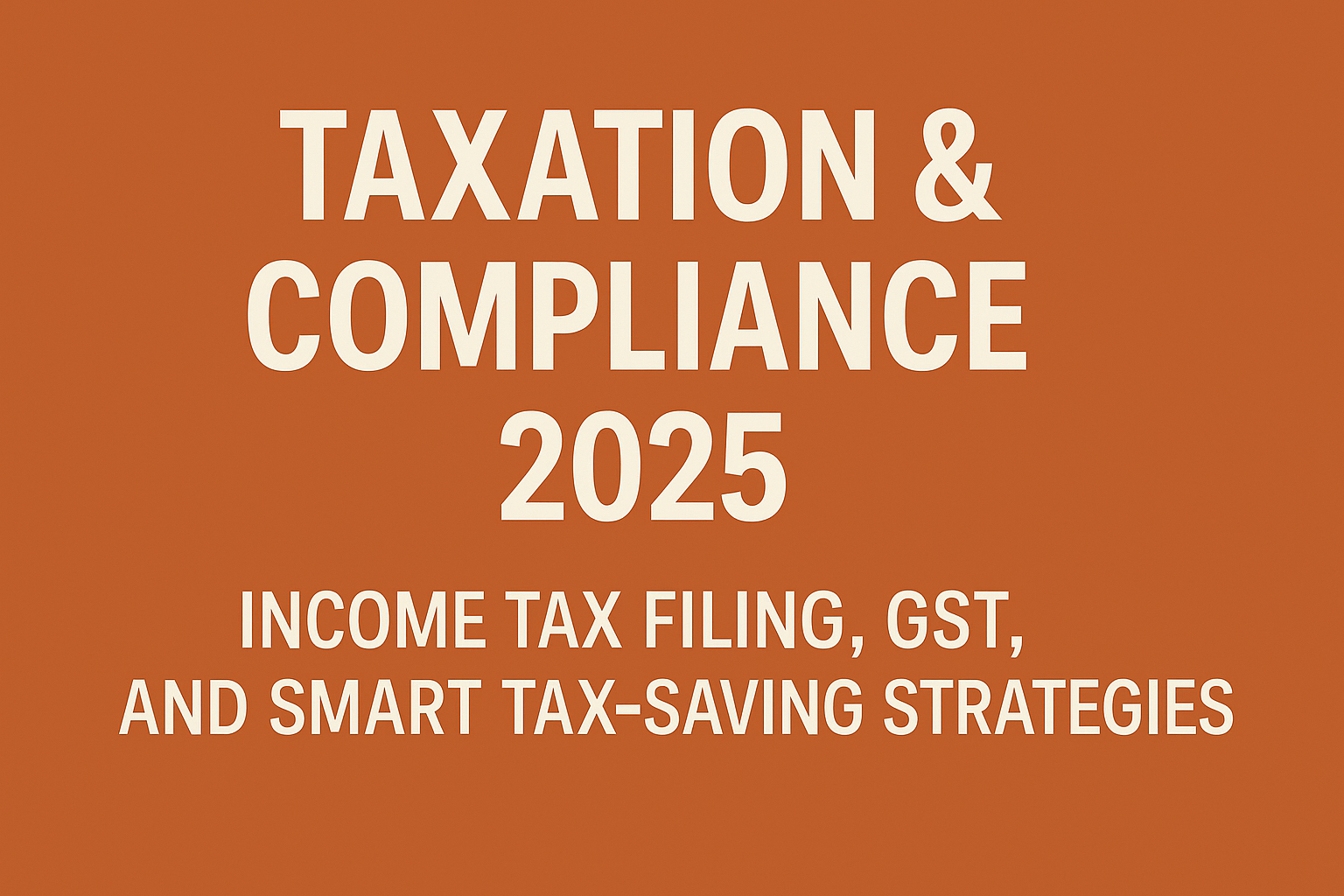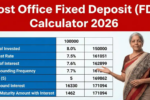Taxation and compliance are critical aspects of personal finance and business management. In 2025, with new government rules, evolving digital systems, and updated tax laws, every taxpayer—whether an individual or a business—must stay informed. This guide covers income tax filing, GST compliance, tax-saving strategies, and recent government updates that will help you plan better and avoid penalties.
1. Income Tax Filing in 2025
Income tax filing is the process of declaring your annual income, expenses, deductions, and tax liabilities to the Income Tax Department. Filing returns on time ensures compliance and provides benefits like quicker refunds, easy loan approvals, and proof of income.
Key Points for Income Tax Filing:
- ITR Forms: Choose the right ITR form based on your income type (salary, business, profession, or capital gains).
- E-Filing: In 2025, most returns are filed online through the official Income Tax e-filing portal.
- Due Dates: For salaried individuals, the due date is usually July 31st of the assessment year. Businesses may have extended deadlines.
- Penalties for Delay: Filing late can lead to penalties of ₹1,000 – ₹5,000, plus interest on unpaid tax.
Average Costs:
- Self-filing via government portal: Free
- Using a CA or tax consultant: ₹1,500 – ₹10,000 depending on complexity
2. Goods and Services Tax (GST) Compliance
Introduced in 2017, GST has become the backbone of India’s indirect taxation system. By 2025, GST filing has been made more digital and transparent to reduce fraud and improve efficiency.
Key GST Compliance Requirements:
- GST Registration: Mandatory for businesses with turnover above ₹40 lakh (₹20 lakh for services).
- GST Filing: Monthly, quarterly, or annual returns depending on turnover.
- Input Tax Credit (ITC): Businesses can claim credit for GST paid on inputs.
- Penalties: Late filing attracts a penalty of ₹50 per day (₹20 for nil returns) plus interest.
GST Rates (2025 Highlights):
- Essential goods: 5%
- Standard goods/services: 12% & 18%
- Luxury items: 28%
Best Practices for GST Compliance:
- Use GST-compliant billing software
- Reconcile invoices monthly
- Stay updated on government circulars
3. Smart Tax-Saving Strategies
One of the most important aspects of taxation is reducing your liability legally through tax-saving investments and strategies.
Popular Tax-Saving Options in 2025:
- Section 80C Deductions (₹1.5 lakh limit): Investments in PPF, ELSS mutual funds, NSC, and life insurance.
- Section 80D: Health insurance premium deduction up to ₹25,000 (₹50,000 for senior citizens).
- NPS (National Pension Scheme): Extra ₹50,000 deduction under Section 80CCD(1B).
- Home Loan Benefits: Principal repayment under 80C, interest under Section 24(b).
- Education Loan (Section 80E): Interest deduction for higher studies.
- Pro Tip: Diversify your investments across mutual funds, retirement schemes, and insurance to balance returns and tax benefits.
4. Government Updates on Taxation 2025
The Indian government regularly updates tax rules to simplify compliance and encourage investment.
Latest Updates (2025):
- Faceless Assessments: Most scrutiny cases are now done digitally to reduce harassment.
- Pre-Filled ITR Forms: Salaried individuals get pre-filled forms with salary, TDS, and interest income.
- GST Amnesty Schemes: Waivers on late fees for small taxpayers introduced to improve compliance.
- Digital Payments Benefits: Tax rebates and lower TDS rates for businesses encouraging cashless transactions.
- Simplified Regime: The government continues to push the new tax regime with lower rates but fewer exemptions.
5. Importance of Compliance
Compliance is not just about avoiding penalties—it builds financial credibility. Whether you are an individual filing income tax or a company submitting GST returns, proper compliance has several benefits:
- Avoids Legal Trouble: Non-compliance can lead to heavy fines or even prosecution.
- Easier Access to Credit: Banks and NBFCs often ask for ITRs and GST records before approving loans.
- Faster Refunds: Accurate filing ensures quicker tax refunds.
- Boosts Business Reputation: Compliant businesses attract more investors and partners.
6. Comparison of Major Tax Requirements (2025
Tax Type Who Needs to File Frequency Penalties for Delay Benefits of Compliance
Income Tax Individuals & Businesses Annual ₹1,000 – ₹5,000 + interest Refunds, loan approval
GST Businesses > ₹40 lakh turnover Monthly/Quarterly/Annual ₹20–₹50 per day + interest ITC, credibility
TDS (Tax Deducted at Source) Employers, businesses Monthly/Quarterly 1%–1.5% interest + fine Avoids
double taxation
Final Thoughts
In 2025, taxation and compliance are more digital, streamlined, and transparent than ever before. Filing your income tax returns on time, staying updated on GST regulations, and using smart tax-saving strategies are essential to secure your finances.
The key to effective compliance is planning, automation, and awareness. Use tax-filing software, consult professionals when needed, and always keep an eye on government updates. By doing so, you not only save money but also build a strong financial profile that benefits you and your business in the long run.






